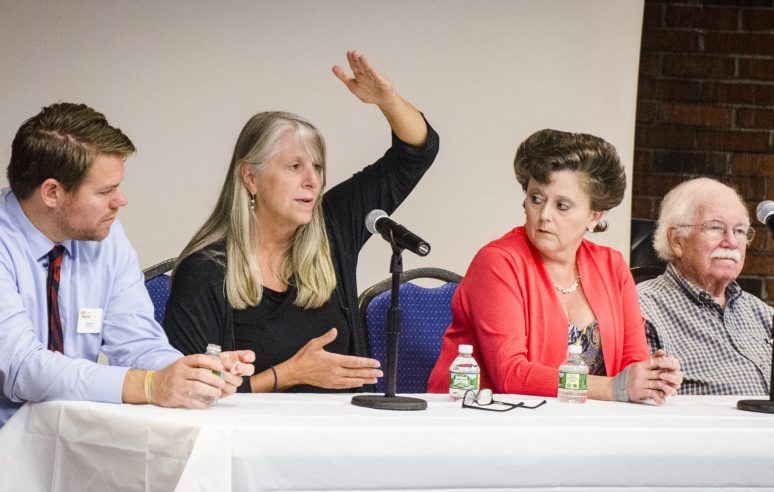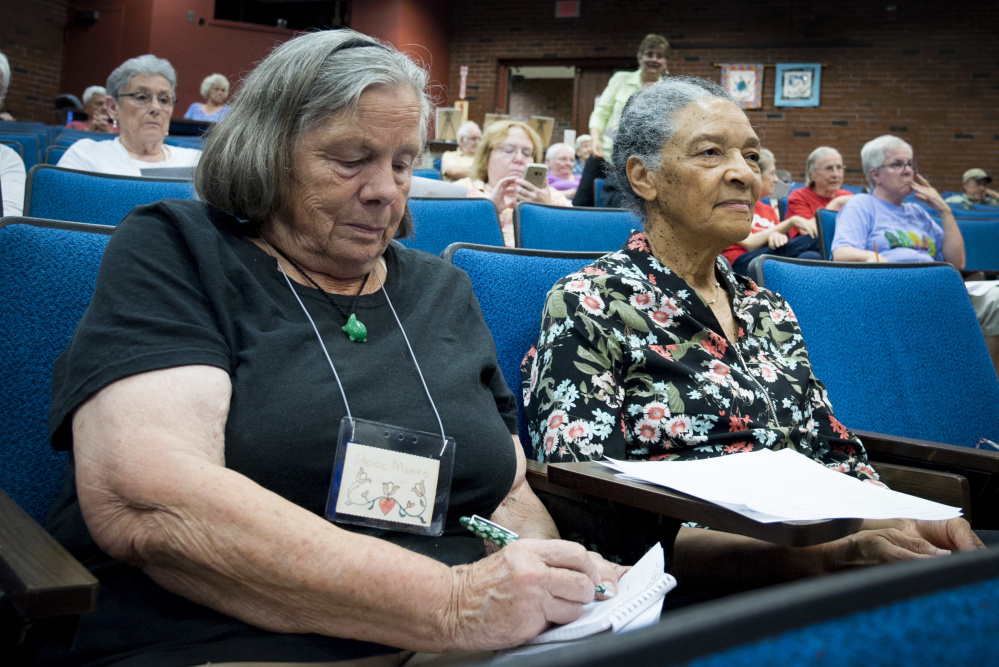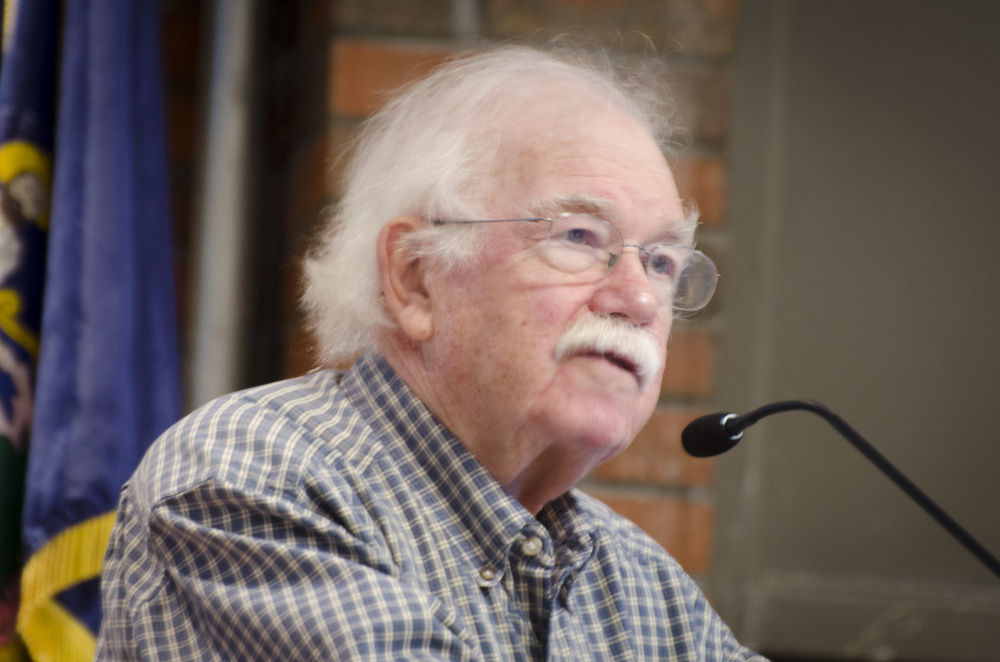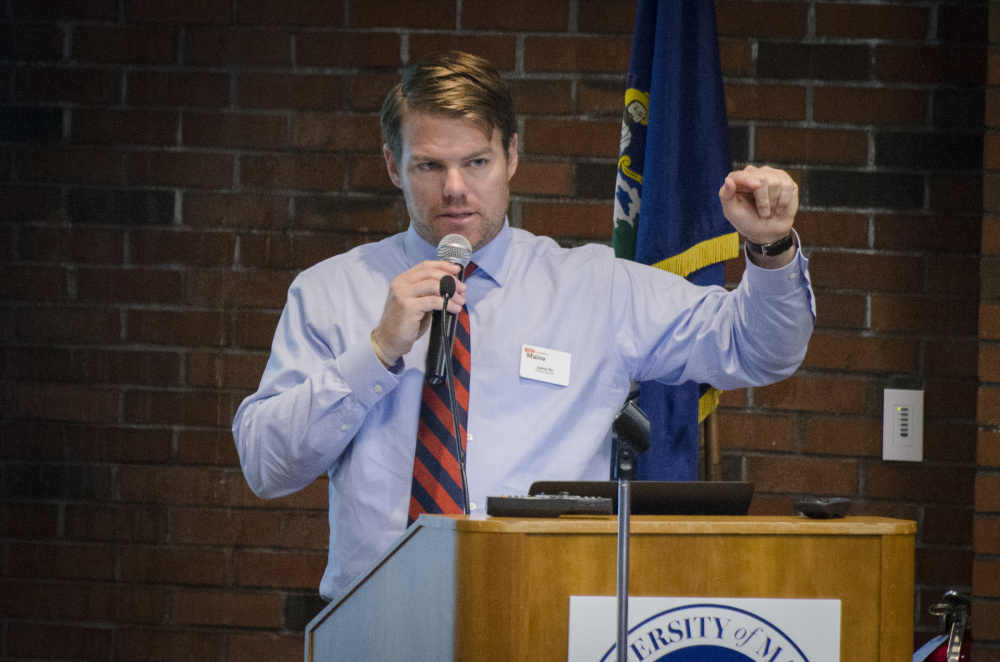AUGUSTA — For Ida Gammon, the big picture of reforms to the Affordable Care Act and Medicaid expansion have been missing a few pieces.
The organization of the information is what’s important, Gammon said Sunday. She takes in what she learns from print and broadcast news, and she scratches her head over what’s being said.
“It’s falling into place quite clearly that we’re about to shoot ourselves in the foot if we fail to take advantage of the opportunity to use government funding for the people in the state whose incomes are too low so they can’t afford to pay for health care for themselves,” she said.
“The thing that up till now hadn’t clicked for me is that hospitals, the people who are employed in hospitals and the pharmacists are dependent on these federal funds being available in our state for our low-income individuals who otherwise would have no insurance,” Gammon said.
The Augusta woman was one of about 40 people who gathered at the University of Maine at Augusta’s Jewett Hall for a presentation on Medicare, Medicaid (MaineCare) and Social Security as part of the Forum on the Future series presented by the College of Arts and Sciences and the UMA Senior College.
Medicare is the federal health insurance program funded through payroll taxes for people 65 and older and some younger people who have disabilities and people with end-stage renal disease. Medicaid is a state and federal program that provides health coverage for low-income people. Social Security is a federal program funded through payroll taxes that provides retirement income to older Americans, and disability income to those with disabilities who qualify.
The four speakers, Dr. Thomas Feagin, a retired physician and expert in medical ethics; Lisa Harvey-McPherson, vice president of Government Relations at Eastern Maine Healthcare Systems; Ann Woloson, policy analyst at the Maine Equal Justice Program; and Jay Els, outreach director at the Maine AARP office, spoke briefly about the impact of state and federal policy decisions on Maine residents. They covered the impact of the rising cost of health care delivery, some possible impacts of repealing and replacing the Affordable Care Act, the upcoming ballot referendum to expand Medicaid in Maine, and the role of Social Security in the lives of older Americans.
The conversation is timely because the U.S. Senate is expected to vote this week on a Republican heath insurance bill that is perhaps the GOP’s last shot this year at repealing and replacing the Affordable Care Act. Among those who have not endorsed the measure, known as the Graham-Cassidy bill, is Sen. Susan Collins, R-Maine, who said Sunday that it’s difficult for her to see a scenario where she could vote for the bill. It was not clear Sunday that Senate Republicans could muster enough votes for a win.
Collins said she was concerned with the bill’s cuts to Medicaid.
In Maine, where the Legislature has voted five times to expand Medicaid, but not with enough votes to override a gubernatorial veto, policy makers are considering the impact of changes on a state where many residents work low-wage service and seasonal jobs that don’t provide health insurance and cannot afford health insurance on what they make. At the same time, they are concerned with changes to health insurance that would require older Americans to pay more for health insurance coverage.
“Everyone that’s here today is in the age range where we are living on our Social Security and whatever we’ve had the insight to put aside so we wouldn’t be living just on Social Security,” said Gammon, who at 75 just stopped working, “but we cannot afford health care without the fact that it’s provided in Medicaid with Social Security.”
Jessica Lowell — 621-5632
Twitter: @JLowellKJ
Send questions/comments to the editors.







Success. Please wait for the page to reload. If the page does not reload within 5 seconds, please refresh the page.
Enter your email and password to access comments.
Hi, to comment on stories you must . This profile is in addition to your subscription and website login.
Already have a commenting profile? .
Invalid username/password.
Please check your email to confirm and complete your registration.
Only subscribers are eligible to post comments. Please subscribe or login first for digital access. Here’s why.
Use the form below to reset your password. When you've submitted your account email, we will send an email with a reset code.